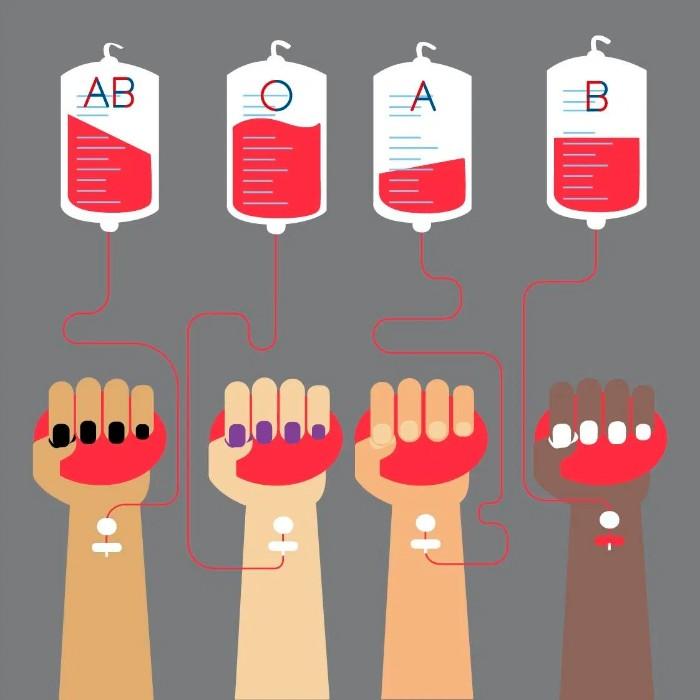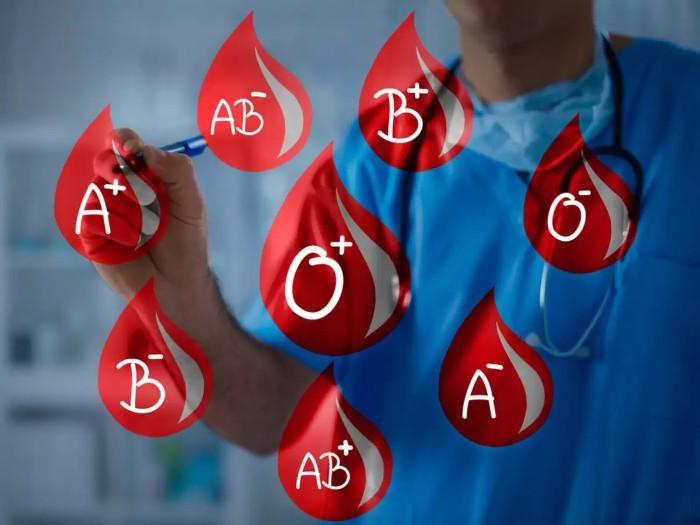Do you know your blood type? If not, it’s time to find out. Knowing your blood type can be useful for a variety of reasons - from helping doctors identify the most effective treatments for medical conditions, to donating or receiving organ and tissue transplants.
In today's blog post, we'll explore all that one needs to know about how to find out their blood type. We will discuss the different methods available and look at the importance of understanding your specific blood type in order to maintain optimal health. So let's get started.
Understand the different types of blood and their antigens
The four basic blood types are A, B, AB, and O. These types are determined by the appearance of certain antigens on the surface of red blood cells(RBCs). Antigens are substances that can prompt an immune response in a person with a different type of blood.
Antigen A is present in type A, and antigen B is present in type B. Type O lacks both A and B antigens, whereas type AB possesses both. The presence of a protein known as the Rh antigen on the surface of red blood cells determines the Rh factor, which can be either negative or positive in addition to these four types.
This means that there are a total of eight possible blood types: A+, A-, B+, B-, AB+, AB-, O+, and O-.
Knowing your blood type is important in case you ever need a blood transfusion. It can also be useful for people who are pregnant since some combinations of maternal and fetal blood types can lead to complications. Additionally, if you want to donate blood, it is important for the donor and recipient to have compatible blood types.
Now that you know a bit more about the different types of blood and their antigens, let’s look at how you can find out your own blood type.
Explain why it’s important to know your blood type
Knowing your blood type is important in many situations, such as when you are donating or receiving a blood transfusion or organ transplant. It’s also important for couples to know their own and their partner's blood type before becoming pregnant since certain combinations can lead to medical complications during pregnancy.
Knowing your blood type may also help you understand why you respond differently to certain medications. Lastly, your blood type may also play a role in determining your risk of certain diseases and health conditions.
Describe how you can find out your blood type through a doctor

One of the easiest ways to find out your blood type is by seeing a doctor. Your doctor can perform a simple blood test called an ABO grouping and Rh typing. This test analyzes a sample of your blood, identifies any antibodies present, and determines which antigens are found on the surface of red blood cells.
Knowing these antigens helps determine your blood type. It’s important to know your blood type, as it can be used for many medical situations.
Your doctor may also ask if you want a complete Blood Typing test which will include a few additional tests such as the Kell Antigen System and the Duffy Blood Group System. These two tests look for additional antigens in your red blood cells and can give a more accurate result.
After the test, your doctor will provide you with the results as soon as they are available. Generally, it takes about 48 hours to get the results back from a lab. Once you have them, make sure to keep them handy in case of any medical emergency. Knowing your blood type can be a lifesaver.
It’s also important to keep in mind that there are other factors that can influence the results of your blood test, such as pregnancy or recent transfusions. Be sure to bring this information up with your doctor before you get tested so they can make an accurate assessment.
By having a doctor perform the test, you can be sure of an accurate and precise result. Knowing your blood type is important for many medical situations, so make sure to talk to your doctor about getting tested today.
Cover the various methods of tests that can be used to determine your blood type
There are several ways to find out your blood type. The most common and accurate test used is the ABO typing test. This test identifies the presence of certain antibodies in your blood and determines if you have type A, B, AB, or O blood. Other blood tests such as the Rh factor also help determine your type, but the ABO typing test is a more comprehensive method.
Another method to determine your blood type is to donate blood and request a notification of your results. While donating blood, you should fill out a form that indicates what type you think you are as this will help ensure accuracy in testing. Afterward, it may take several days to receive your blood type results.
You can also ask your doctor or healthcare provider for a blood test to determine your type. They will typically send a sample of your blood to an outside laboratory for analysis and you should be able to get the results within one to two weeks.
Finally, if you know that both of your parents have the same blood type, then you can assume that your own blood type is the same. This method is not 100% accurate, but it can give you a good idea of what your blood type may be.
Regardless of which method you choose to use, knowing your blood type is important for understanding how different medical procedures may affect you. As such, it is important to take the time to find out your blood type if you don’t already know it.
Share any myths or misconceptions about knowing your blood type

Many people mistakenly believe that knowing their blood type is not important or relevant to their overall health. However, being aware of your blood type can be beneficial in certain situations where a person may need a transfusion of blood or organ donation from another individual. It is also the basis for many tests used in medical settings and research studies.
One of the most common myths is that you can determine your blood type just by looking at yourself in the mirror. However, this is absolutely false and cannot be done without a qualified medical professional properly testing for it. Another myth is that certain foods or lifestyles will influence your blood type. Again, there’s no scientific evidence to support this claim.
Knowing your blood type is an important part of understanding your health and staying informed about your medical history. Thankfully, there are many ways to find out what type you are, so make sure to consult a qualified professional before making any assumptions. It could be the difference between life and death in certain situations.
FAQs
How can I check my blood type at home?
Unfortunately, it is not possible to accurately check your blood type at home without a qualified medical professional. However, if you know that both of your parents have the same blood type, then you can assume that your own blood type is the same.
What happens during a blood test to determine my blood type?
During a blood test to determine your blood type, a sample of your blood will be taken and sent to an outside laboratory for analysis. The lab technicians will then look for the presence of certain antibodies in your blood that indicate which type you are.
What should I do if I don’t know my blood type?
If you don't know your blood type, you can visit your doctor or healthcare provider and request a blood test. You can also donate blood and request notification of your results. Alternatively, if you know that both of your parents have the same blood type, then you can assume that your own blood type is the same.
Conclusion
To sum it all up, understanding your own blood type is extremely important. Whether you’re looking to receive a transfusion or donate blood and organs, verifying your results with an official healthcare practitioner can help ensure that you are aware of the best methods for your specific situation. You can learn more tomorrow at our expert-led webinar and Q&A session about blood types and how to know yours correctly. To gain access to this invaluable knowledge, be sure to register ahead of time before spots fill up.

Health Benefits of Biotin
Apr 26, 2023

Low-Glycemic Fruits for Diabetes
Apr 24, 2023

Benefits of Hawthorn Berry
Apr 20, 2023

What is a Gastroenterologist
Apr 18, 2023

What is Neuralgia
Apr 20, 2023

How Long Does Vertigo Last
Jul 30, 2023

Recognizing Prediabetes: Symptoms and Early Warning Signs
Aug 03, 2023

Foods That Are High in Vitamin D
Apr 26, 2023



